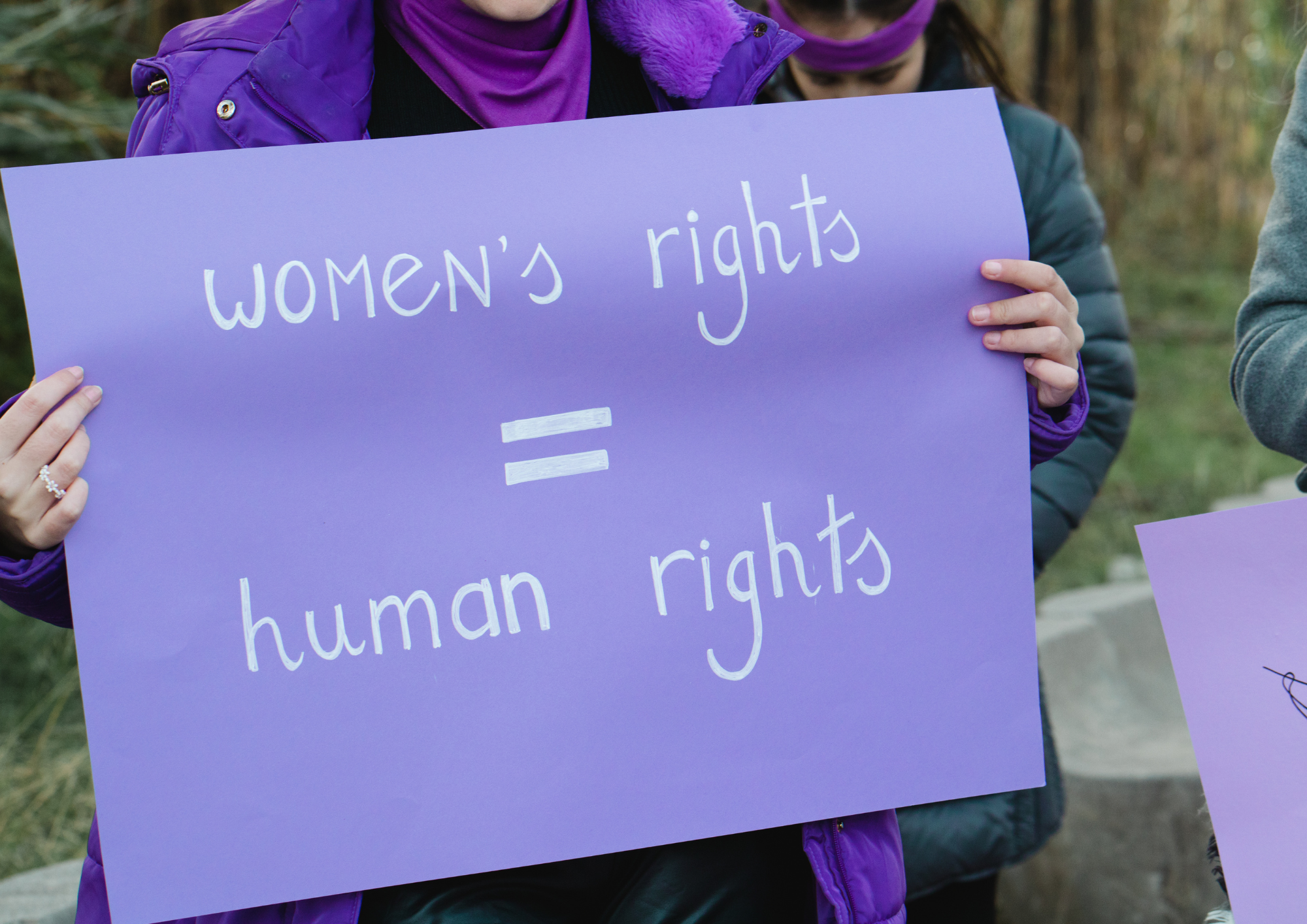NEWS

IN BRIEF

Pakistan’s last-place ranking in the World Economic Forum’s 2025 Global Gender Gap Index is not just a statistical failure, it is a moral one. With women making up half the population, the systemic disregard for their safety, representation, and rights continues to deepen. This blog critically unpacks the underlying causes of Pakistan’s worsening gender gap from institutional apathy and under-enforced laws to a culture of impunity that protects aggressors and silences survivors. The thought-piece also calls for meaningful reform: robust implementation of existing laws, better-trained law enforcement, and a cultural shift that centers women’s safety and dignity.
SHARE
Pakistan has once again found itself at the bottom of the global ladder in the latest World Economic Forum’s Global Gender Gap Index, ranking 148th out of 148 countries in 2025. This bleak scorecard isn’t just a number; it reflects the persistent and worsening inequality that continues to fail half of Pakistan’s population. Just last year, in 2024, Pakistan ranked 145th out of 146 countries. The drop in ranking highlights a grim reality: while other countries are progressing through better implementation of laws and cultural shifts, Pakistan continues to regress due to inaction, impunity, and institutional failure.
The National Commission on the Status of Women (NCSW) has expressed concerns over the report, questioning its methodology citing issues with data representation and visibility. While such concerns about data accuracy are important, they must not overshadow the urgent realities on the ground: women continue to suffer violence, exclusion, and systemic neglect, whether or not the data captures it perfectly.
With women constituting nearly 51% of the population, the Global Gender Gap Index reveals how far we are from gender parity. The index, which assesses four key areas–education, health, economic participation, and political empowerment–shows Pakistan performing especially poorly in economic participation (only 36.2% parity) and political empowerment (just 15.2%). These figures aren’t due to a lack of ability or ambition among women, but because systems continue to sideline them in male-dominated spheres.
These statistics are not just numbers. They are representative of the lives of Pakistani women, many of whom are lost due to this broken system. In 2024 alone, Pakistan recorded 32,617 cases of gender-based violence (GBV). Punjab reported 26,753 cases, including 4,641 rapes, 225 honour killings, and over 20,000 kidnappings. Yet the conviction rates remained abysmally low–only 0.5% for rape and honour killings combined. These figures reflect a state that has consistently failed to protect its women.
In recent months, two cases have captured public attention due to their brutality. Sana Yousaf, a 17-year-old content creator and social media influencer, was shot dead in her own home–allegedly for rejecting a man’s advances. Her only crime was saying ‘NO’. What was supposed to be her safest place became the site of her murder, turning the notion of ‘safety at home’ into a cruel illusion for thousands of women across the country.
In April 2025, Eman Afroz, a university student pursuing a degree in International Relations at the International Islamic University Islamabad (IIUI), was murdered in her hostel room at G10/1 sector of Islamabad. The case was not even taken seriously until Sana Yousef’s case came out and created hype. It later emerged in the investigation that the killer climbed the wall of the hostel with a weapon, waited in the courtyard for about an hour before entering the room of Emaan, where she was brutally killed. The police have now arrested the accused, and the investigation shows a criminal record for the accused. This poses serious questions on our security system, where a person with a criminal record was roaming around and yet wasn’t arrested before he committed another crime and took someone’s life.
Both Sana and Eman were young, educated, and full of promise. Their futures were violently cut short–not just by the hands of individual attackers, but by a society that enables such violence, protects aggressors, and silences victims. These are not isolated incidents. They are the products of a larger, systemic failure–where gender-based violence is normalized, victim-blaming is routine, and justice, if it comes at all, arrives far too late.
Despite brief media coverage and momentary public outrage, these cases reveal much deeper patterns:
- A justice system where FIRs are often delayed, manipulated, or never filed at all
- University campuses that release statements but take no real protective action
- Law enforcement that reduces GBV to a “private matter” rather than a crime
- Social norms that shame and silence the survivor while justifying the aggressor
The recent incidents and Pakistan’s last position at the Global Gender Gap Index aren’t just about a few violent men but more about the structure that protects them and gives them power, institutions that fail to protect women, and a culture that has long been teaching women to be silent instead of resisting. In a country where patriarchy dictates norms, the safety of a woman is considered a privilege. One loud ‘no can cost her life. This is how vulnerable the women of Pakistan have become.
Law enforcement agencies are not adequately equipped to handle these cases. Many officers are undertrained and under-resourced. Public spaces–from universities to hospitals to public transport–are unsafe by design. And in these unsafe spaces, women are expected to survive, comply, and stay quiet.
We must ask difficult but necessary questions:
- Where were the hostel’s security protocols when Eman was killed?
- Why was Sana’s murderer able to flee so easily, despite the high-profile nature of the case?
- Why does every tragedy follow the same loop–public outcry, a few news cycles, and then silence?
We need more than sympathy. We need to feel their stolen futures, their silenced dreams, and their terror. Legal reforms are crucial, yes–but without genuine cultural change and strict institutional accountability, they will remain ink on paper. Laws must be enforced, not just passed. Pakistan has introduced several legal frameworks to address gender-based violence–like the Anti-Rape (Investigation and Trial) Act (2021) and the establishment of special GBV courts. However, as recent media reports highlight, these measures often remain under-implemented, underfunded, or non-operational. Without trained staff, forensic resources, or proper inter-agency coordination, these laws remain toothless, and survivors are left without justice.
Police force must receive proper GBV response training, and institutions must go beyond a reactive approach to proactively safeguarding women. The culture of victim-blaming must end, and perpetrators must be held accountable at every level. Pakistan’s last-place ranking is not a surprise–it’s a mirror. A mirror reflecting the decades of impunity, systemic neglect, and a society that only values women in mourning, not in life.
While Pakistan’s last-place ranking paints a grim picture, it’s worth acknowledging some efforts made over the past decade. State institutions like the National Commission on the Status of Women (NCSW) and provincial bodies have introduced reforms–such as the gender data portal, voter registration drives to reduce the gender gap, and harassment reporting apps. The introduction of GBV courts and legal amendments show some intent toward progress. However, these efforts remain fragmented, underfunded, and often poorly implemented. Until these initiatives translate into real protection, representation, and justice for women on the ground, any progress will remain symbolic–and Pakistan’s ranking will continue to reflect the gap between policy and practice.
About the Author:
Momal Nawab is a research intern at Accountability Lab Pakistan, and can be reached at momal@accountabilitylab.org
